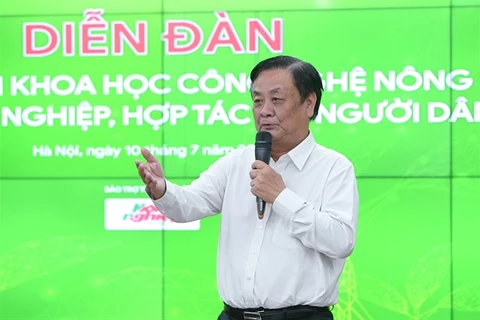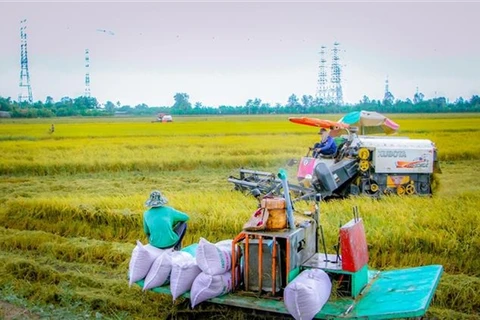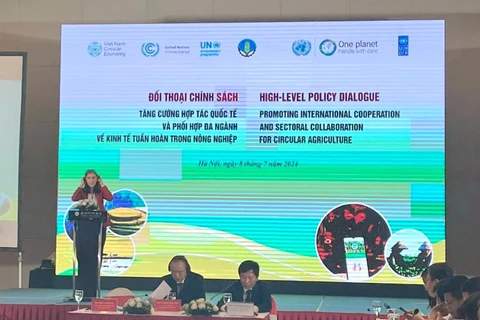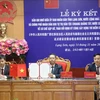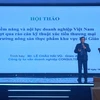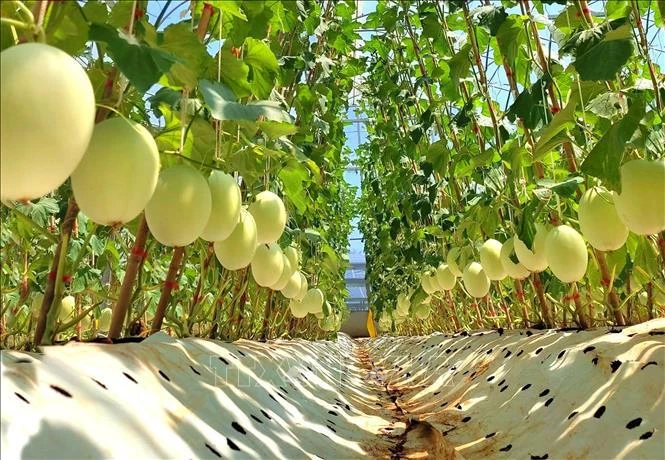
HCM City (VNA) – Organic agricultural products are gaining traction among consumers due to their sustainability, safety, and nutritional benefits. However, despite the rising demand, organic farming only accounts for a small portion of Vietnam's agricultural sector.
Experts have acknowledged the importance of strengthening supply chains to drive the sustainable growth of organic agriculture and secure better incomes for farmers.
The Vietnamese government has demonstrated a strong commitment to developing organic agriculture through a series of policies aimed at fostering this sector. The Party Central Committee's 2022 Resolution No. 19-NQ/TW on agriculture, farmers, and rural areas emphasises the promotion of green, organic, and circular agriculture.
Earlier, in 2018, the government issued Decree No. 109/2018/ND-CP on organic agriculture, followed by Decision No. 885/QD-TTg in 2020, which set out a comprehensive plan for organic agriculture development from 2020 to 2030. These policies are designed to align Vietnam's organic agriculture with global trends.
Dao Thanh Van, Vice President of the Vietnam Organic Agriculture Association (VOAA), highlighted that organic farming is a global trend, with 191 countries and territories engaging in organic practices, of them 74 having specific regulations for organic production. In Vietnam, traditional organic farming has been practiced for centuries, yet it remains limited in scale.
As of late 2023, Vietnam had approximately 495,000 hectares dedicated to organic farming, representing 4.3% of the country's total agricultural land and 0.69% of the global organic farming area.
Despite its modest scale, Vietnam has successfully implemented several effective organic farming models that have significantly enhanced the reputation of Vietnamese agricultural products.
According to Lam Dong province's Department of Agriculture and Rural Development, the Central Highlands province has over 1,500 hectares which have been certified organic, with 1,308 hectares meeting international standards and 270 hectares satisfying Vietnamese standards.
By the end of 2023, Lam Dong had facilitated the creation of 10 organic production and consumption chains, which have generated higher profits for local farmers compared to conventional farming methods.
Meanwhile, the southern province of Binh Duong has 600 hectares under organic cultivation. Pham Van Bong, Director of the provincial Department of Agriculture and Rural Development, revealed that the province has implemented a plan to develop its organic agriculture development strategy from 2020 to 2030, aiming to maintain certified organic cultivation areas by 2025.
Organic agriculture not only delivers higher economic returns but also equips farmers with enhanced knowledge and skills, encouraging a shift from traditional practices to safer and more responsible farming methods. Organic products are distributed through supermarkets, clean agricultural stores, and exports, effectively meeting market demand.
Experts believe that organic agriculture aligns with Vietnam's agricultural restructuring policy, which aims for increased added value and sustainable, environmentally friendly development. This approach also enhances the global competitiveness of Vietnamese agricultural products.
However, long-term success in organic farming requires close collaboration among all stakeholders within the organic production system.
Le Minh Linh, Deputy Director of the National Agricultural Extension Center, emphasised that collaboration is key to developing a modern agricultural sector that balances the interests of all participants. Organic agricultural production under chains can be organised through horizontal linkages (farmer-to-farmer, cooperative-to-cooperative, enterprise-to-enterprise) or vertical linkages (farmer-cooperative-enterprise). These linkages are essential for increasing value and ensuring sustainability in both crop and livestock sectors./.
